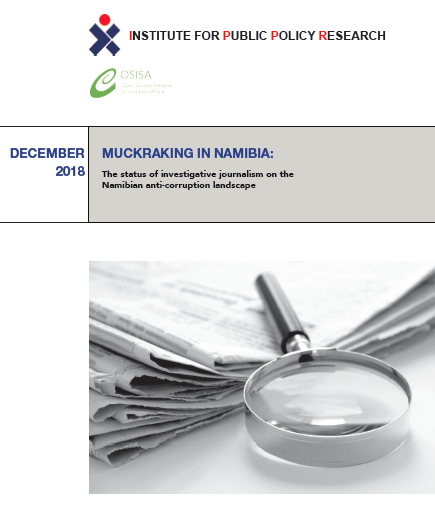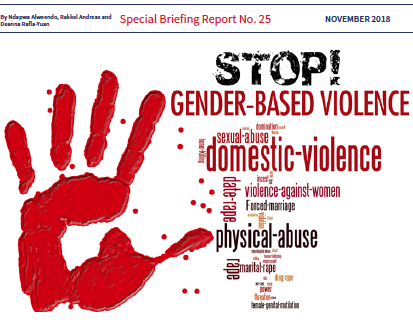Namibia’s Media: Facing the Digital Challenge
Digitalisation is transforming how media products are both created and accessed. Consumers can now exercise more control over their media use in terms of how they access content.
Consumers are increasingly likely to only access a few stories from newspapers or TV stations, rather than reading a newspaper from cover to cover or watching an entire news bulletin. These stories are accessed online via social media platforms, digital media or search engines – mostly for little or no monetary gain for the respective media outlet. On the positive side, digitalisation has led to new and innovative ways of presenting content and engaging with consumers.
Public procurement lacks transparency
The latest issue of the Procurement Tracker, an quarterly initiative launched in 2018 by the Institute of Public Policy Research (IPPR) to monitor and track developments and issues within the Namibian public procurement sphere, states that successive reviews of the procurement systems in place and the body managing the processes “suggest a system in trouble and even in turmoil.”
Study of media sustainability in Namibia launched
The Namibia Media Trust and the Institute for Public Policy Research on Monday launched the first media sustainability study in the country.
The launch, which came ahead of World Press Freedom Day on 3 May, assessed how the industry is being disrupted and reshaped in the digitalisation era. The event was also held in collaboration with the Hanns Seidel Foundation and the Open Society Initiative for Southern Africa (Osisa).
Namibia civil society organisations mostly dormant since 2016 – report
WINDHOEK – The Namibian Civil Society Organisations (CSO) remained mostly dormant during the last two years due to a decrease in donour funding, a report by the Institute for Public Policy Research (IPPR) launched on Wednesday stated.
Funding, politics threatening civil society
This was revealed in the CSO Sustainability Index report released by the Institute for Public Policy Research (IPPR) on Wednesday in Windhoek.
IPPR director Graham Hopwood said on the whole the political and funding climate within which Namibian civil society functions has deteriorated in 2017, the year for which the assessment was done.
5% of corruption cases finalised since 2006
Out of the 6 605 corruption reports registered with the Anti-Corruption Commission (ACC) since its inception in 2006, only 347 have been finalised in the courts.
A total of 605 cases have been submitted to the prosecutor-general (PG) for a decision. Of this figure, 212 cases are still pending trial, while 24 are pending the PG’s decision.
This leaves much to be desired in the anti-graft fight, according to ACC’s director-general, Paulus Noa.
Criminal case delays fail justice system – Noa
Members of the public with evidence implicating suspects of corruption but were not prepared to testify also failed the criminal justice system.
These were the remarks by Anti-Corruption Commission director general Paulus Noa during the commemoration of International Anti-corruption Day held in Windhoek last week.
Noa said the criminal justice system was made up of multiple stakeholders, and that the success of the ACC in fighting corruption depends on the cooperation of all stakeholders involved.
Muckraking in Namibia

Investigative journalism shines a light of accountability on those who seek to commit acts of corruption under a shroud of secrecy. Yet, investigative journalism cannot play a meaningful role in reducing corruption unless it is properly funded and supported. In Namibia, the pressures of producing daily newspapers can mean there is a lack of resources […]
Fighting gender-based violence (GBV)
While in many societies women have achieved a great deal of equality and freedom to define who they are rather than be defined by the expectation of others, endemic patterns of oppression and repression continue to exist even within the same societies.
Violence against women is still common everywhere. We know, for instance, that a women’s class, social status, level of professional achievement, race, religion or cultural heritage will neither protect her nor make her more vulnerable to experiencing violence within her intimate relationship, or from rape, verbal and psychological harassment – which are also forms of violence that occur in a workplace, home or on the street.
Landscaping Gender-based Violence in Namibia

Gender-based violence (GBV) is generally accepted as one of the most urgent issues facing Namibian society and policymakers. Despite a raft of important and largely progressive legislative reforms – such as the Combating of Domestic Violence Act (2003) and the Combating of Rape Act (2000) – GBV remains a developing crisis in Namibia. Horrific acts […]

